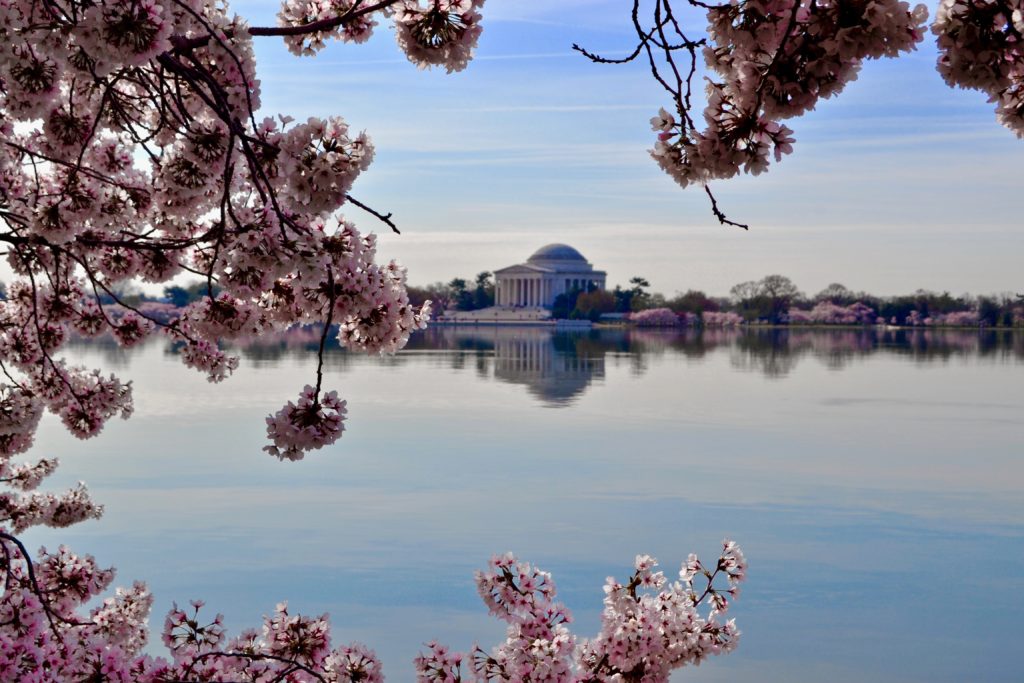Sunday is National Religious Freedom Day. There's a presidential statement as there has been annually since 1993, but officially it’s not really different from "National Cheeseburger Day" (September 18), just with more history and lately more controversy.
January 16th was the day in 1786 that the Virginia General Assembly passed the Virginia Statute for Religious Freedom, authored by Thomas Jefferson, championed by James Madison and inspiration for the First Amendment. Jefferson introduced the Statute in the Assembly in 1777 and 1779 but in large part due to the strength of the Anglican Church it did not pass. In 1785, while Jefferson was serving as ambassador to France, a controversial bill that would have levied a tax on Virginians to support churches and church schools came close to passing but ultimately did not have the votes.
The next year, Madison reintroduced Jefferson’s bill to preclude any similar tax and make it official that “no man shall be compelled to frequent or support any religious worship, place, or ministry whatsoever, … nor shall otherwise suffer, on account of his religious opinions or belief, but that all men shall be free to profess, and by argument to maintain, their opinions in matters of Religion…” Jefferson’s bill did not mince words: “Our civil rights have no dependence on our religious opinions any more than our opinions in physics or geometry.” “Religion tends only to corrupt the principles of that very Religion it is meant to encourage, by bribing with a monopoly of worldly honours and emoluments those who will externally profess and conform to it.”
An amendment was offered to insert the name Jesus Christ into the bill and was rejected. Jefferson later wrote that “the insertion was rejected by a great majority, in proof that they meant to comprehend, within the mantle of its protection, the Jew and the Gentile, the Christian and Mahometan [Muslim], the Hindoo [Hindu], and Infidel of every denomination.” Thomas Jefferson did not believe that religious freedom applied only to Christians.
The Virginia Statute for Religious Freedom became a bellwether for the principles of religious freedom in states and other countries. Clearly it influenced Madison as he started the First Amendment with “Congress shall make no law respecting an establishment of religion, or prohibiting the free exercise thereof.” It should certainly be celebrated. The Virginia Statute broadly defined the phrase “religious freedom” for two centuries.
Unfortunately that definition is being corrupted in recent years by people who want to use their religious beliefs to discriminate. From bakeries that won’t bake for some people to adoption agencies that won’t let some people adopt, the idea of religious freedom is being twisted far from what the Founders believed. You can find support for such bakeries and adoption agencies at the Religious Freedom Institute, for example. It would not be a great leap to include atheists among those who can be discriminated against.
In fact, this is exactly why the Biden administration in its Proclamation for Religious Freedom Day included the nonreligious as a group whose rights must be defended. The White House has recommitted themselves "to protecting the freedom of people of all faiths and none, both across our Nation and around the world." It's a very good sign to see the president endorse a view of religious freedom that includes the nonreligious. This is a big step forward from previous administrations and can be attributable to the advocacy work of secular Americans like yourself.
At the Secular Coalition for America we believe religious freedom means freedom of — and freedom from — religion, regardless of which religious tradition happens to make up the majority of the nation or the government. The separation of religion and government is the best guarantee of freedom for people of all faiths and no faith. As Jefferson said, religious freedom also applies to "Infidels".
Our work to ensure true religious freedom for all Americans regardless of religious affiliation depends on your support. Please click here if you would like to help us protect and defend true religious freedom in 2022.



